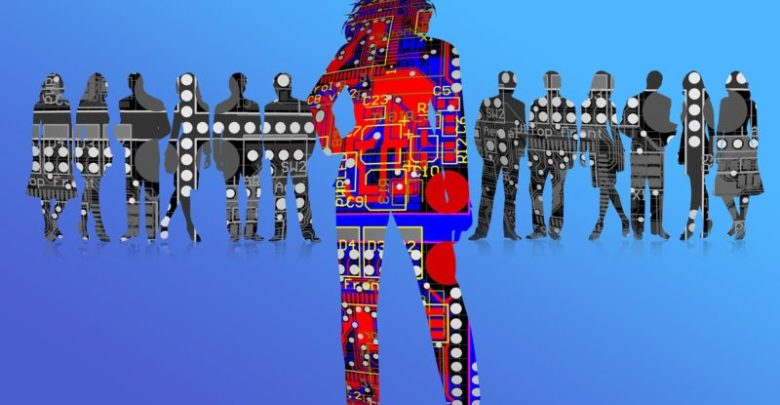Source – hotelowner.co.uk
Artificial intelligence or AI. It’s a term we’re hearing increasingly often; from online customer support chat bots to virtual assistants, it seems AI is quickly becoming part of our everyday life.
The growth of AI driven solutions and, in particular, the application of machine learning can now be seen in almost every industry. But, how will it affect the way we specifically work in hospitality and leisure?
One change we can be confident it will influence is the way we do recruitment.
One of the most challenging parts of hotel management is finding and hiring the right people. It’s perhaps therefore no surprise that there are a growing number of tech companies working hard to innovate and offer solutions to support each part of the often onerous recruitment process. And a large majority of these incorporate some form of AI, designed to take the weight off recruitment professionals and managers.
Gathering meaningful references, for example, is often the bane of a hotel manager’s existence. In its traditional form, reference checking can be clunky, slow, expensive and risky.
Xref is one example of an organisation innovating in the recruitment sector, having launched a smart solution for candidate referencing that automates the process and is quickly becoming a leader in its sector.
AI supports many of Xref’s core capabilities, including its ability to analyse a number of variables at one time and flag potential candidate fraud. Also driven by AI is the platform’s Sentiment Engine, which uses an algorithm to interpret a referee’s ‘tone of voice’ in their written response, and calculate the percentage of the feedback that is positive, neutral and negative. The algorithm works away in the background of the platform, and delivers organisations with an additional piece of candidate insight, at a glance. It removes assumptions, takes subjectivity out of reference reading, and ensures no hiring decisions are made on the basis of a misinterpretation.
There are a number of other benefits AI will offer HR professionals in the hospitality and leisure industry, here we look at three key improvements.
- Elimination of unconscious bias
One of the big ongoing challenges facing recruiters is the ability to approach each candidate without bias. Unconscious bias is an ingrained human trait and is defined as “automatic, mental shortcuts used to process information and make decisions quickly” to which “everyone is susceptible.” For example, the ‘similarity attraction effect’ – in other words, the tendency of people to seek out others similar to them. The beauty of AI is that machines are inherently unbiased, using only data to make decisions. Xref’s ‘Sentiment Engine’ is a perfect example of this, as it eliminates noise and draws out the objective data to drive decision making. In addition, the platform collects more data than traditional phone-based referencing which, again, increases the insight from which recruiters are able to make informed and confident hiring decisions.
- Processing high volume tasks quickly
Every stage of the recruitment process can be prone to delays and unnecessarily time-consuming tasks. If you’re a hotel chain that hires dozens, if not hundreds, of new recruits each year, that time quickly adds up, creating a very inefficient recruitment system.
AI based tech can now shorten every stage of the process, from the early stages of sifting through CVs and applications through to reference checking those who have made it through to the final stages. Indeed, Xref estimates that its ‘Sentiment Engine’ can save recruitment professionals valuable time that can then be spent on other important areas of the business.
![]()
Bullhorn is another AI powered HR tool that is being adopted by professionals in the industry.
Bullhorn’s applicant tracking system automatically tracks and logs the recruitment cycle associated with each candidate to offer a complete and unbiased view of all candidate interactions and relationships as well as saving time on the onerous task of data entry.
- Providing consistency in HR
Maintaining consistency in recruiting approaches is extremely important, both in terms of ensuring high quality hires and avoiding potential legal battles for discriminatory of data privacy breaches.
AI, and the ongoing machine learning that often sits behind it, can be programmed to maintain a consistent approach to the applicant filtering process at every stage of the recruitment journey.
In contrast, the conversational and human nature of traditional approaches can cause inconsistencies in the way tasks are conducted depending on factors such as mood, unconscious bias or due to changes in the recruiting personnel.
Those inconsistencies are often compounded by growth, especially if that growth is on a global level with recruitment operations in different countries. It’s one of the reasons The Dorchester Collection recently engaged with Xref, to ensure consistency in its reference screening across its portfolio of hotels as part of an overall more streamlined and effective recruitment system.
As an industry that directly employs some 2.3 million people in the UK and where reputation for excellent customer service is key to survival and growth, making the right hire and doing it efficiently is critical in hospitality and leisure. Add to that the relatively high staff churn rate in this sector and the extent of the need for incorporating simple, efficient, secure and insightful tools to the recruitment process, becomes very clear.
Ultimately, however, there is no substitute for meeting someone, talking to them face-to-face and having a human connection with them. After all, you may have to work directly with them for over 40 hours every week. A rapport is key.
Used wisely, AI can be incorporated into recruitment processes to carefully blend the intelligence of technology with the skill and instinct of recruiters. Getting this right will maximise efficiency and support hospitality businesses, both large and small, in making smart and confident hiring decisions based on data-driven insights rather than just a ‘gut feeling’.
